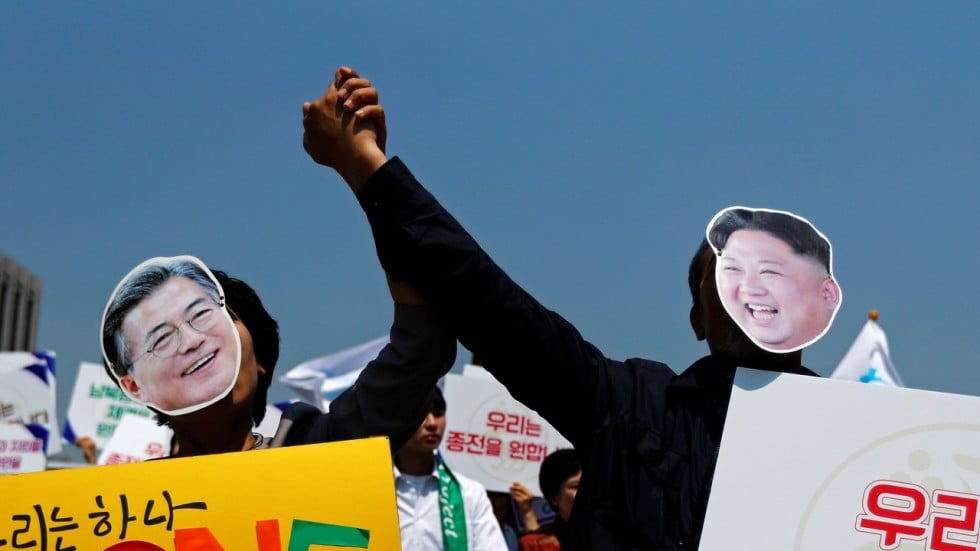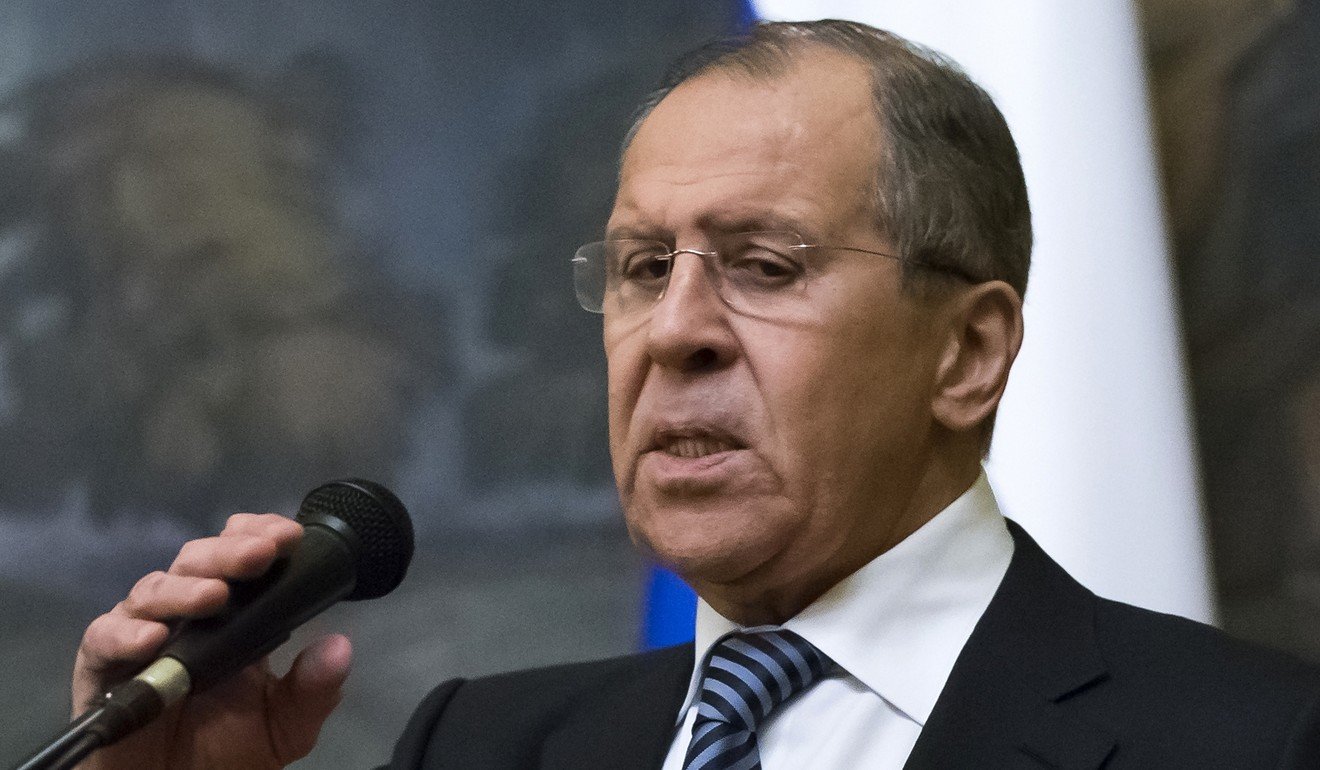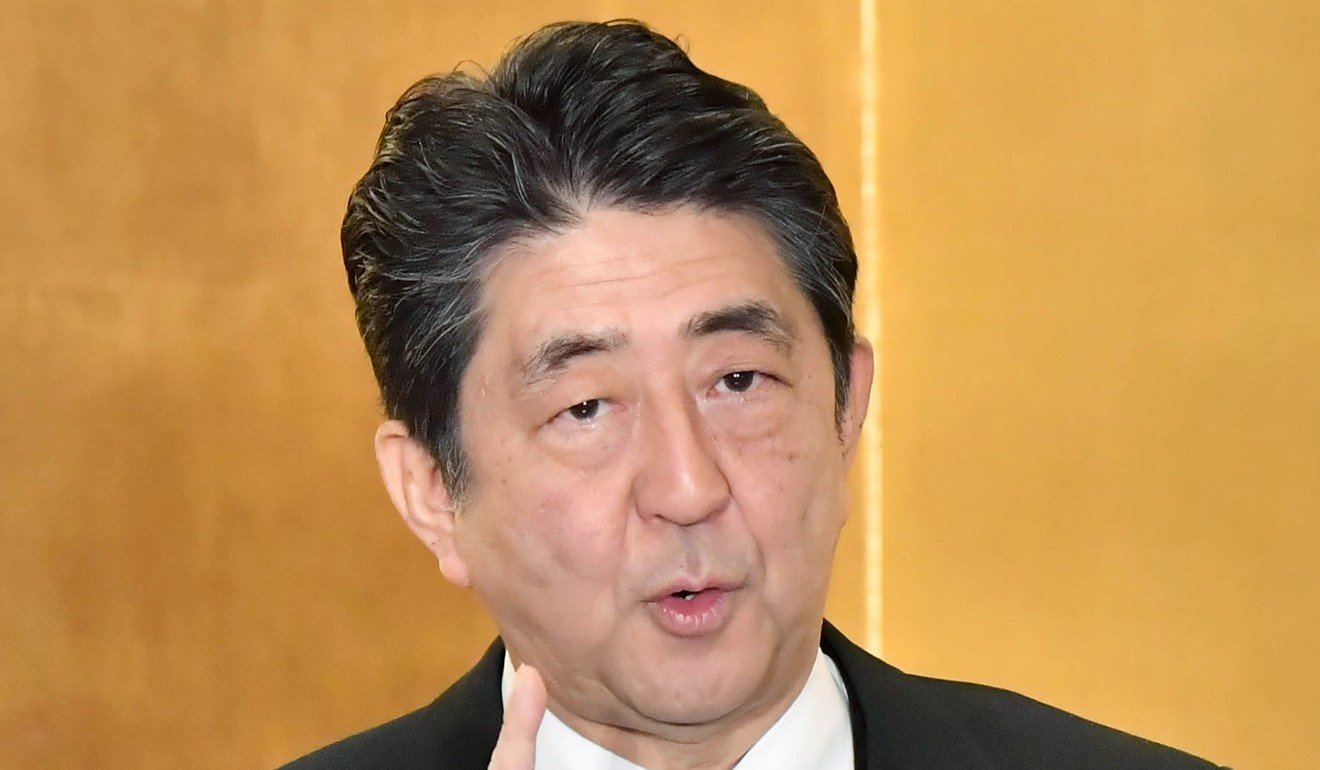Region’s stakeholders all have an interest in rejoining negotiations, while US and South Korea would prefer narrower remit.
As the situation on the Korean peninsula shifts rapidly, regional stakeholders are working to ensure they will each have a seat at any negotiating table.
The battle for influence in the decades-long North Korea crisis is key ahead of high-stakes summits planned between Kim Jong-un, leader of the reclusive authoritarian state, and South Korean President Moon Jae-in in April, then US President Donald Trump in May or June.
In recent months, the region has seen a decompression in tensions – which escalated after a series of missile and nuclear tests from Pyongyang, then retaliatory international sanctions – and a rapprochement between North and South Korea for the winter Pyeongchang Olympics.
The upcoming summits present an opportunity to pave the way for negotiations further down the line, including on the denuclearisation of the Korean peninsula, analysts say.
But the key players have different security interests, with some pushing for the resumption of six-party talks – intermittent negotiations suspended in 2009 – and others preferring fewer players at the table. Here’s what each of the major stakeholders wants from potential talks.
China: Four-party talks (US-ROK-DPRK-China) or Six-party talks
China wants to position itself as the central state in Korean peninsula diplomacy, with the security of the region closely related to the stability of its northeastern region.
As North Korea’s isolation grew over the past few years, China’s influence over the Korean peninsula appeared to wane, exacerbating security in the northeast, one of its least developed regions.
Why China remains cautious over prospects for breakthrough at Korean leaders’ peace summit
But Beijing was successful in changing the perception last month when Kim visited ahead of his talks with Moon and Trump. Chinese state media reported that Kim’s visit was at President Xi Jinping’s invitation – a strategic effort to protect China’s national interest by preserving the status quo on the Korean peninsula.
By leaving North Korea as its buffer from Washington’s powerful democratic influence, China may buy time to work against a sudden disruption of the regional power structure and give it greater room for political and strategic manoeuvre.
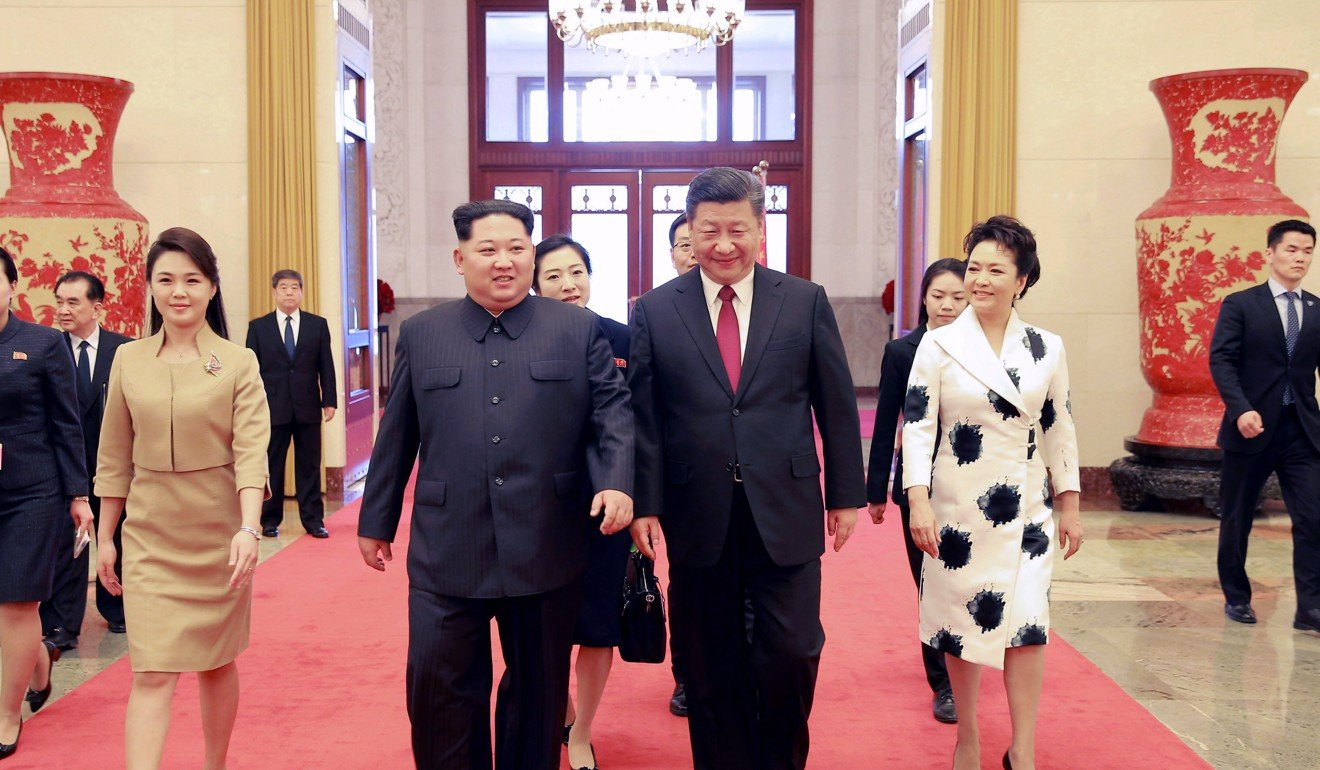
“Whether it is four or six, the number is not key as long as China is involved,” Zhao Tong, a fellow on the nuclear policy programme at the Carnegie-Tsinghua Centre for Global Policy, said.
“But at the moment, China would seem to opt for the four-party talks because it will be a more direct discussion.”
South Korean diplomatic sources told the South China Morning Post that Beijing proposed a “collective body” for the peninsula talks when Yang Jiechi, a Politburo member and special envoy of Xi, travelled to Seoul to meet Moon last month.
Nuclear crisis at ‘crucial moment’ for US-North Korea talks, Chinese minister says
Although Beijing also seeks denuclearisation of the Korean peninsula, securing a peaceful environment for the enhancement of Chinese domestic growth is its top priority, and the best way to achieve this is through a “collective body” of dialogue.
Yang stressed during his visit that Beijing needed to be actively involved in any dialogue, and that China wanted to guarantee both the security of the North Korean regime and the removal of nuclear weapons from the Korean peninsula, sources said.
United States: Three-party talks (US-ROK-DPRK) / Bilateral talks (US-DPRK)
One of Washington’s foremost strategic priorities in the region is countering Beijing’s growing global clout, fearing that a rising China will undermine the US-led world order.
Washington considers Beijing a potential competitor with and challenger to its global hegemony. Since the Obama administration, Washington has implemented its ‘Pivot to Asia’ strategy, to limit China’s influence in Asia and counteract Beijing’s attempt to shift the equilibrium of the East Asian regional order.
The US prefers three-party talks or bilateral talks directly between Washington and Pyongyang, since excluding China gives the US a way to check Beijing’s growing influence, a source who used to work at the Ministry of Unification in South Korea, said.
Trump says Kim Jong-un ‘very open’ and ‘very honourable’
“One of the ways to check and balance China is to expand its military facilities throughout the peninsula,” the source said. “If China is involved in the talks, the US can’t talk freely about its possible options with North Korea.”
The fastest way to halt North Korea’s advancement of nuclear-capable intercontinental ballistic missile technology is to have direct talks with Kim, said Boo Seung-chan, a research fellow at Yonsei Institute of North Korean Studies in South Korea.
“The US has never gambled its security against other nuclear states, so the pre-emptive ‘bloody nose’ operation cannot be an option, because nuclear attack in any part of US territory would cause a total catastrophe,” he said, noting that North Korea’s existing technology was capable of attacking US territory Guam.
Talks without China would also allow the US to maintain its legitimacy to continue its military engagement in the region.
The presence of a rogue state, North Korea, has given the US legitimacy to conduct drills using its strategic assets on the Korean peninsula over the past few decades. When a nuclear-powered aircraft carrier, USS Carl Vinson, made a port call in Busan in South Korea last year, many analysts expressed the opinion that the drill was aimed at China.
A retired officer of the Republic of Korea Air Force, who requested anonymity, said: “When Carl Vinson came to Busan, its crews must have checked various military operations targeting mainland China.”
US in no position to lecture ‘disobedient’ countries on human rights, says North Korea
If denuclearisation of the Korean peninsula were achieved through the upcoming talks, the US would lose one of its pretexts to engage in East Asian regional security. Washington is therefore likely to demand strategic compensation in return, so as to continue its engagement there.
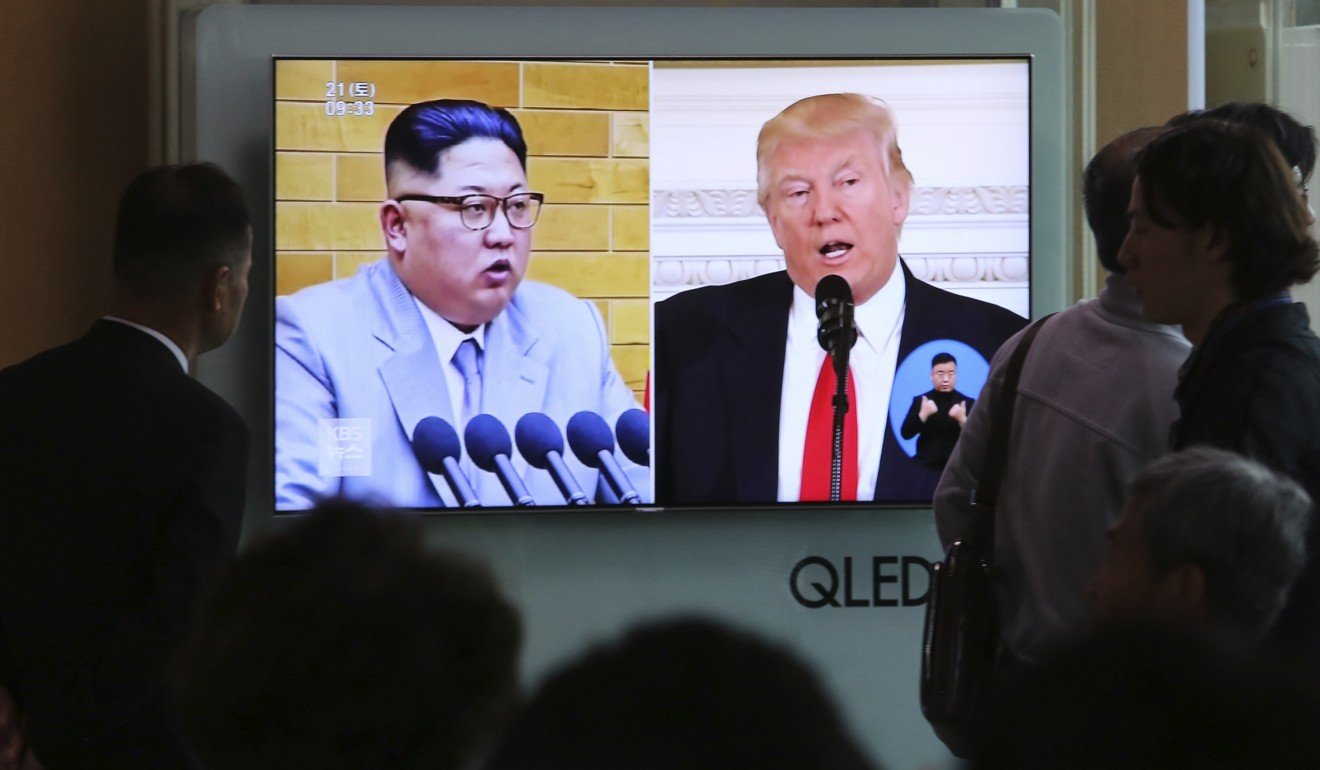
“We do not know how much the US will demand [from North Korea], or how much the North may accommodate [the US]” said Kim.
South Korea: Three-party talks (US-ROK-DPRK)
Seoul prefers three-party talks with Pyongyang and Washington through a collective dialogue mechanism, South Korean diplomatic sources said, since its influence could be diluted in four-party or six-party talks.
Its goal is to achieve the denuclearisation and prevention of military conflict on the Korean peninsula, while avoiding being sidelined in any moves towards reconciliation with North Korea.
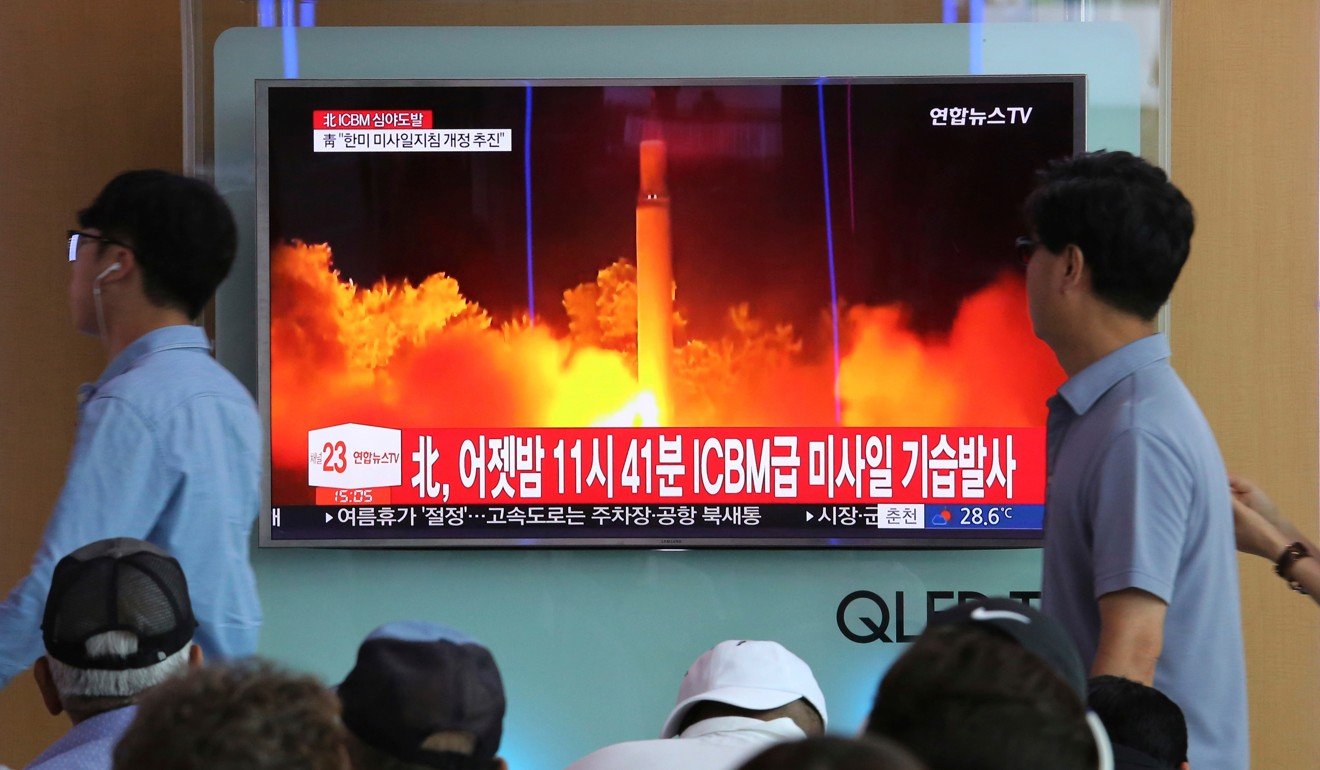
Although South Korea’s presidential office said no decision had yet been reached on the collective dialogue mechanism, Moon said last month that a three-way summit with North Korea and the US was possible.
Why economic cooperation could be the stumbling block at the inter-Korea summit
But some South Korean politicians argue that Seoul ultimately has no choice but to allow China to be involved in peace discussions.
“It is true that three-party talks is our priority, but after the talks we are likely to invite China [to join in discussing] the settlement of permanent peace in the Korean peninsula,” Won Hye-young, a Democratic Party of Korea lawmaker, said.
North Korea: Six-party talks
Survival has been North Korea’s primary goal, fuelling its desire to become a nuclear state. International sanctions in recent months have tightened the screws on the hermit kingdom, with particularly painful measures from China, its biggest trading partner.
Kim’s policy has been to play nations off against one another, analysts said, and six-party talks would allow it to sit at the negotiating table with neighbouring China and Russia by its side.
In the lead-up to high-stakes summits with Moon and Trump, Kim has recognised the need to coordinate with both China and Russia to enter negotiations with their backing, said Benoit Hardy-Chartrand, lecturer at the University of Montreal.
Korea summit: is Kim Jong-un sincere? Here’s how to tell
Kim’s decision to travel to Beijing for his first foreign trip shows that he needs China, in particular, as a key guarantor of his regime’s survival, analysts said.
“North Korea is using a hedging strategy,” Boo explained. “President Trump may demand something in the summit that Kim could never accommodate. By patching over relations with China, he is trying to build a safety net for his regime.”
Russia: Six-party talks
Russia has seen its influence on the Korean peninsula recede in recent years, and is keen to avoid being sidelined in the region’s biggest crisis, particularly with it being on its borders.
With the North Korean summits approaching, Russian Foreign Minister Sergey Lavrov has welcomed a high-level government delegation from Pyongyang to Moscow, headed by Foreign Minister Ri Yong-ho.
Even as Moscow contends with a host of foreign policy issues, including its increasingly fraught relationship with Washington, it is keen to maintain its foothold on the Korean peninsula, given the security risks from nuclear weapons or chaos in North Korea.
Japan: Six-party talks
Japan, too, has been marginalised in recent developments on the Korean peninsula, but Prime Minister Shinzo Abe has sought to remedy this by exploring the possibility of holding a summit with Kim.
Japan demands Koreas pull dessert from summit menu because it features disputed islands
In addition to denuclearisation, Tokyo has pushed to ensure the negotiation agenda would include Japanese nationals abducted by alleged North Korea agents decades ago.
“Everybody seems right now to want to be a part of the game, now that Trump and Moon are going to meet with Kim,” Hardy-Chartrand said. “There’s a real risk for Abe to be left on the sidelines … Nobody wants to be left on the sidelines.”
Additional reporting by Kinling Lo
[Disclaimer]




